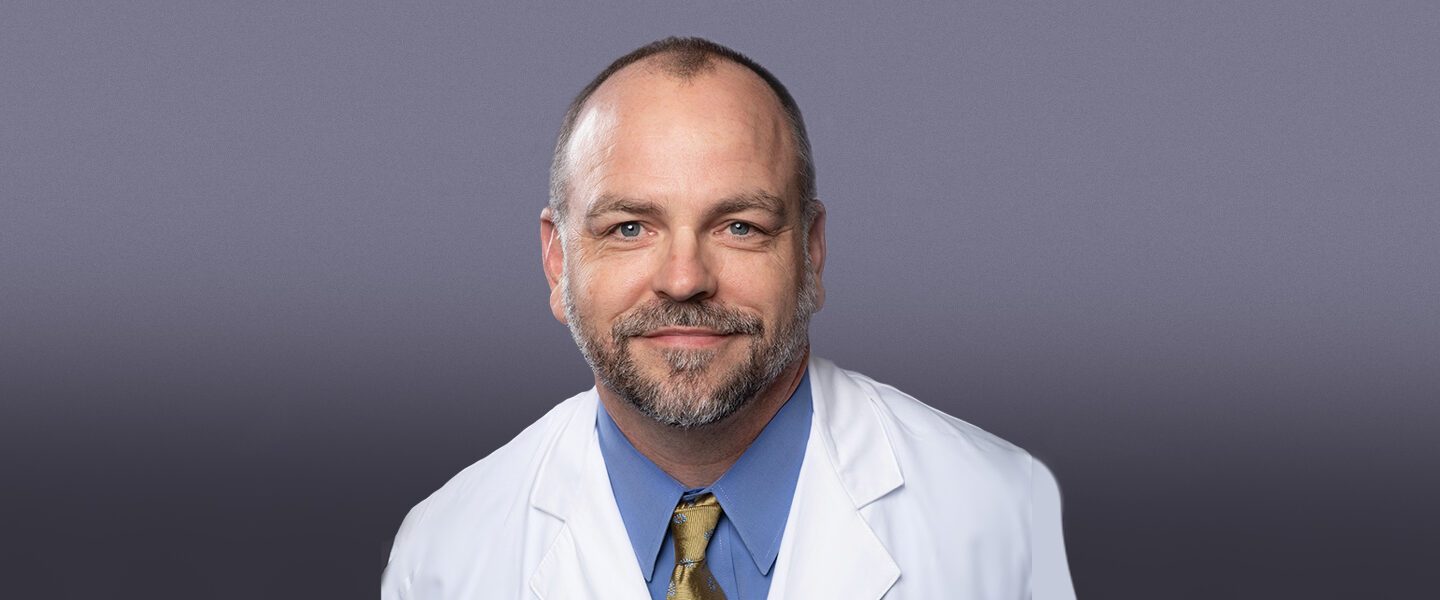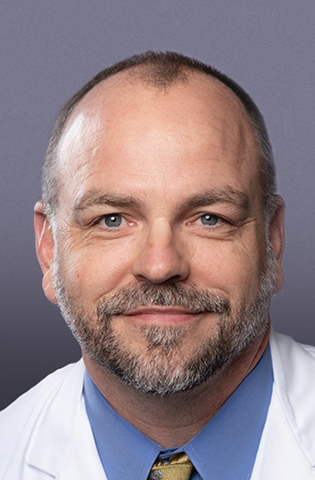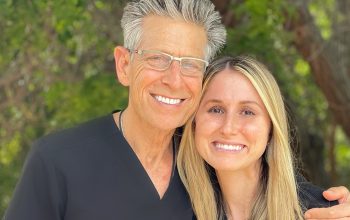Michael Hasty, MD, thought he’d pursue law but ultimately chose emergency medicine — just like his father did.


It wasn’t Michael Hasty, MD’s original plan to follow in the groundbreaking footsteps of his father, Norman Hasty, MD. When he first left Nashville, Tennessee, to attend Washington and Lee University in Virginia, he meant to pursue a very different career.
“Coming out of high school, I didn’t want to pursue medicine,” says Dr. Hasty, chief of emergency medicine at TriStar Centennial Medical Center in Nashville. “I didn’t love the science part. I thought I was going to law school. But then, my freshman year of college, I started thinking, ‘What do I want to do every day? To help people.’ So I was drawn back to medicine.”
By then, Dr. Hasty was already quite familiar with the emergency room.
“I actually got stitches seven times before I was 4½, because I was adventurous,” he says, chuckling. “So I spent a lot of time as a patient in the ER when I was a little kid.”
Dr. Hasty completed his residency in emergency medicine at the Indiana University School of Medicine in Indianapolis and then returned to Nashville for a position at Baptist Hospital (now called Ascension Saint Thomas Hospital Midtown), where his father had worked. He joined the TriStar Skyline Medical Center’s emergency staff in 2006 and became chief of emergency medicine for TriStar Centennial in July 2019.
Married, and the father of four, Dr. Hasty lives in Nashville, the city where he grew up.
Q: What first drew you to emergency medicine?
A: My father was an ER doctor, a pioneer in the world of emergency medicine. He was part of the generation that helped build emergency medicine into a specialty. Seeing what he was doing and hearing about the care he was providing caught my interest from an early age.
Q: What’s most rewarding about it?
A: Every day is different. You have the ability to try to figure out what’s going on and make a positive impact in someone’s life. During medical school, every rotation I did, I tried to find out what was better than emergency medicine. And with the exception of trauma surgery, which I really enjoyed, I didn’t like anything else as much as emergency medicine.
Q: And today?
A: I really enjoy meeting people, hearing their stories and then helping to figure out what is going on. Sometimes that’s diagnosing their medical illness. Sometimes that’s listening to everything they tell you and learning that they’re in a behavioral health crisis and helping them manage that.
Q: How many patients, on average, do you and your colleagues see daily, and how does that impact your work?
A: We see between 100 and 110 patients per day in the adult emergency department (ED) at (TriStar) Centennial.
ED crowding is a nationwide reality. Much of this, at least in middle Tennessee, is because it’s difficult to find staffing. Even five, 10 years ago, we were talking about an impending nursing shortage, with experienced nurses retiring and fewer new nurses. This was accelerated during the pandemic. This creates a bottleneck in the ED, as new patients come into a department that’s already filled with patients. The American College of Emergency Physicians, our professional society, is dedicating a lot of time discussing this.
We trust each other, and all of us provide great care. We support each other in caring for patients and each other. The team is able to keep patient care our focus.— Michael Hasty, MD, chief of Emergency Medicine, TriStar Centennial Medical Center, Nashville, Tenn.
Q: What are common challenges facing emergency care?
A: The traditional challenge of emergency medicine has been — and continues to be — having to make medical decisions based on sometimes incomplete information in a fast-paced setting where minutes can determine the patient’s ultimate clinical outcome. We spend three years of residency learning how to operate in this environment and then spend our careers honing this skill.
Each setting has its own challenges, and depending on volume the through-put model of each ED is slightly different. At Centennial, we’re a tertiary care referral center, with almost every specialty available. Our ED population skews more complex, with more comorbidities and a high volume of behavioral health patients because we have a psychiatric hospital.
Q: How are you and your team able to address those challenges?
A: Prior to the pandemic, it was fairly uncommon for us to have a lot of admitted patients holding in our ED. We had a high number of nurses, so even if all beds were full upstairs, the hospital would creatively pull patients into a surgical waiting area or similar area to begin inpatient care.
Now, with fewer nursing resources, we’re changing how we operate, such as placing admits on hospital beds in the ED when we know they’ll be with us overnight, or working with the dietary department to make sure that everyone gets a meal. We have been flexible in making sure that our patients get what they need.
Q: What are some of your proudest moments in the ED?
A: We’ve always had the opportunity to care for a lot of people experiencing behavioral health emergencies, and the pandemic has increased this. Centennial has implemented enhanced care for our behavioral health patients. Measures include opening a behavioral health area separate from our ED, where it’s calmer and quieter and offers patients dignity and privacy.
Q: What stands out to you about the team you’re working with?
A: The physicians, PAs (physician assistants) and NPs (nurse practitioners) who work with me are excellent clinically. They’re resilient through difficult times and dedicated to improving patient care. When we start a new process that will make the flow of the department better or help us take better care of people, they buy in. If they have concerns or questions, we all discuss them and make sure we agree. We trust each other, and all of us provide great care. We support each other in caring for patients and each other. The team is able to keep patient care our focus. Centennial is lucky to have such a great team of providers.


